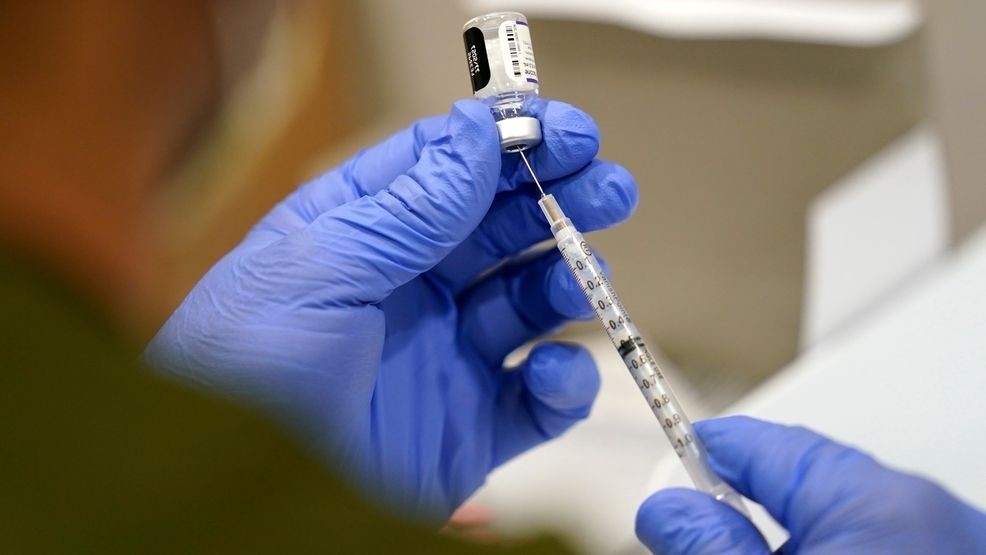Description
(TNND) — Health Secretary Robert F. Kennedy Jr.'s decision to terminate nearly $500 million in government funding for mRNA vaccine development has alarmed public health experts.
“This is a deeply troubling development,” said Jennifer Nuzzo, the director of Brown University's Pandemic Center. “I mean, it's troubling in the short term, because it means that we will be less prepared for future pandemics. But it's also troubling for the longer term.”
Nuzzo said she’s concerned this move will sow doubt about vaccines and hinder medical innovation.
“I'm surprised and disappointed,” said virologist Paula Cannon at the University of Southern California.
There's compelling scientific data for both the efficacy and the safety of mRNA vaccines, Cannon said.
And she said there’s “incredible excitement” about how mRNA technology might be used to do more than just protect people from infectious diseases.
“The ease and the speed with which we can turn around RNA vaccines, or RNA vaccine candidates, I guess we should say, is revolutionizing how we think about vaccination not just for infectious disease but for cancer,” Cannon said. “There's really incredibly exciting data coming through now that you can vaccinate somebody with like a personalized RNA vaccine that's exactly being designed to target their cancer.”
Kennedy announced Tuesday that Health and Human Services was pulling funding for mRNA vaccine development, calling the technology’s efficacy inadequate.
Termination of contracts and “de-scoping” of mRNA-related work in existing contracts, along with other changes, will affect 22 projects.
Kennedy promoted whole-virus vaccines and novel platforms instead of mRNA vaccines.
“Let me explain why,” Kennedy said in a video. “Most of these shots are for flu or COVID. But as the pandemic showed us, mRNA vaccines don’t perform well against viruses that infect the upper respiratory tract. Here’s the problem, mRNA only codes for a small part of the viral proteins, usually a single antigen. One mutation and the vaccine becomes ineffective."
Kennedy said the risks outweigh the benefits with mRNA.
“That seems like an unfortunate lack of understanding of immunology and vaccines in general,” Cannon said in response to what Kennedy said.
“The point about mRNA only codes for a single protein, that's very analogous to a whole bunch of vaccines that we currently use that are based on giving people recombinant proteins,” she continued. “Hepatitis B vaccine, for example. So, the idea that a vaccine is less effective because it only targets a single protein makes no sense based on other vaccines.”
The shingles vaccine is another non-mRNA vaccine that employs a similar targeted strategy, she said.
“A whole range of vaccine technology is based around figuring out what is the best part of the virus to show to the immune system to get the best immune response,” Cannon said. “So, mRNA allows us to do that.”
Scientists have explored mRNA potential for vaccines for quite a while, but they delivered the first real-world applications of the technology for COVID-19 immunizations during the pandemic.
Moderna and Pfizer-BioNTech already produce mRNA-based COVID vaccinations.
And now flu vaccines are being developed with mRNA technology.
But Kennedy has taken other steps in opposition to mRNA technology.
Health and Human Services previously pulled funding for drugmaker Moderna to continue testing an mRNA vaccine intended to protect people from the bird flu.
And Kennedy announced the government would stop recommending the COVID-19 vaccine for healthy children and pregnant women.
Nuzzo said she disagrees “fervently” with Kennedy’s claim that mRNA vaccines aren’t effective.
“I mean, there are millions of people who are alive today because they were vaccinated against COVID. It's the first use of these mRNA vaccines. It really is a godsend,” Nuzzo said. “If I want to keep myself up at night, it's to think what would have happened had we not had these vaccines. So, no, these vaccines do exactly what we need them to do, which is that they keep you out of the hospital and keep you from dying."
Nuzzo said mRNA vaccine development is faster and more nimble than traditional vaccine approaches.
She said mRNA is under attack because of its association to the COVID-19 vaccines, conflated with fair and legitimate questions about vaccine mandates or booster recommendations.
“Unfortunately, I think really false storylines emerging about the safety and efficacy of mRNA vaccines used during the COVID pandemic ... is being hijacked right now as an opportunity to sow doubt about all vaccines,” she said.
Whole-virus vaccines, which were promoted by Kennedy as a “safer, broader” vaccine strategy, is not an inherently better approach, Nuzzo said.
And shutting down the pipeline of mRNA research and development “does raise the prospect that you may not get a better flu vaccine in the future,” she said.
We are going to have another pandemic, Nuzzo said.
Just look at the last century or so to see that pandemics are inescapable, she said.
And she said mRNA vaccines can be a valuable tool to respond quickly to the next pandemic.
“What we've done is basically systematically taken off the table a very promising pathway towards preparedness for future unknown threats,” Nuzzo said.
Other Related News
08/06/2025
WALB is working to produce a video for this story In the meantime we encourage you to watc...
08/06/2025
PLAINS Ga WALB The National First Ladies Day Commission in partnership with The Society o...
08/06/2025
TNND Total household debt in the US increased by 185 billion in the second quarter to rea...
08/06/2025
THOMAS COUNTY Ga WALB On July 30 2025 Thomas CountyThomasville Narcotics agents executed ...
08/06/2025









